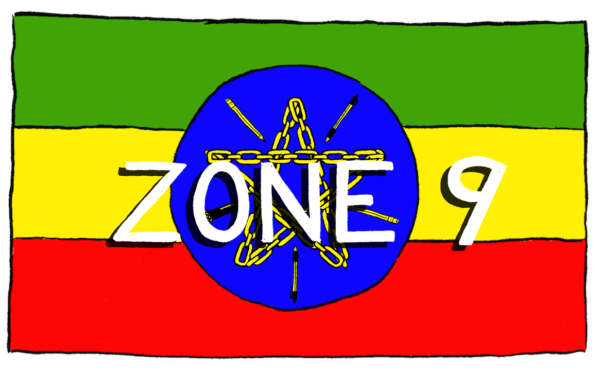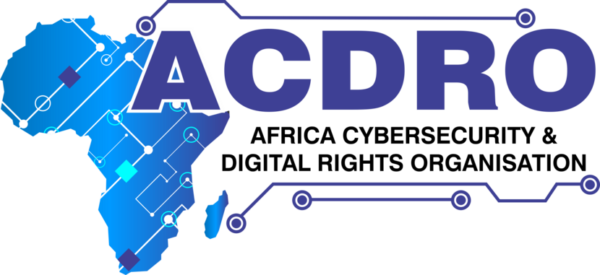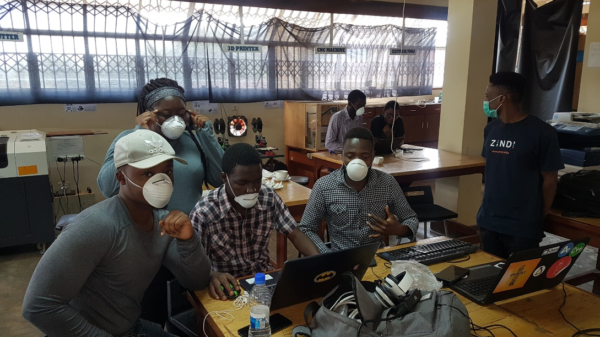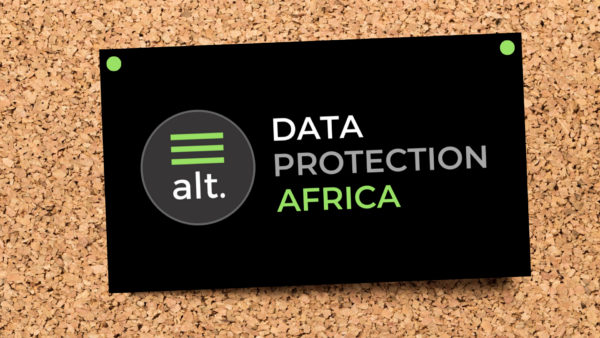Just like in North America and Europe, new technologies are embraced on the African continent, with AI and data driven tools often seen as quick solutions for problems that exists on the continent. These tools—which are often developed by Western developers and designed to solve Western problems— are celebrated and applied without any adjustments or critical discussions. Tools that provide solutions for Western society may not always have the same effect in African countries. This can have far-reaching consequences, especially in the health sector. Researchers Eleanor Black and Robyn Richmond found out that mammography, an effective medical imaging process used in high-income countries, is not the best way to detect early forms of breast cancer in Sub-Saharan Africa. These countries won’t be able to implement and sustain screening programs due to financial, logistical and social constraints.
64 kilometres southeast of Nairobi, Kenya, Konza Technopolis is being developed. Konza Technopolis should put Kenya on the map as a tech hub. The smart city is slated to become the Silicon Valley of Africa, also known as the Silicon Savannah. The billion dollar project is 85% funded by Export–Import Bank of China and 15% by the Kenyan government. As part of the project the Chinese technology company Huawai has deployed over 1800 CCTV cameras.
According to researcher Abebe Birhane there’s a lack of awareness of the harmful consequences of technologies that are not developed in Africa. In her article Algorithmic Colonialism she states that the continent would do well to adopt more critical evaluation when AI and data driven tools are regulated, deployed and reported. Birhane: “Given that the technological future of the continent is overwhelmingly driven and dominated by such techno-optimists, it is crucial to pay attention to the cautions that need to be taken and the lessons that need to be learned from other parts of the world.”
Luckily there are a bunch of initiatives in Africa countries that are developing tools specifically for the African continent or raise critical awareness of the adoption of Western technologies and platforms. We will name a few:
The power of blogs
Blogs helped young people to become powerful voices in Africa. In the podcast The Horn, writer Najala Nyabola said about the power of blogs: “What digital technologies and social media have done is that it’s giving young people a voice that they don’t have on traditional media. That they don’t have in politics. That they don’t really have in any other space. Because these places were treated with so much disdain by power, people said ‘they are just posting pictures of food and fashion’, people were able to organise in these spaces.”
Nyabola points out Zone 9 bloggers, a group of online activists from Ethiopia, as one of the examples of young people finding their power through blogging. The Zone 9 bloggers are dedicated to connecting like-minded people in order to criticise the government. The collective blogs with the motto ‘We Blog Because We Care’ and is focused on human rights, freedom of expression, good education, and social justice.
Zone 9 bloggers is just one example of a community of citizens raising their voices to critique their government on the African continent. The Bloggers Association of Kenya and Bloggers of Zambia are other online activist groups.

Africa Cybersecurity & Digital rights organisation
Africa Cybersecurity & Digital rights organisation is a non-governmental organisation pioneering the rights to access, privacy, security, freedom of expression, and policy-oriented research within the digital environment in Africa and beyond.
Website

Pollicy
Pollicy is group of technologists, data scientists, creatives and academics looking to innovate government service delivery across Africa. They work with governments, civil society, NGOs and the private sector to re-design services around citizen needs and demands. They organise conferences, have created a game to inform people about misinformation, exploring the use of data by feminist movements in Africa, and engaged with Facebook, Instagram and WhatsApp policy teams about online gender-based violence amongst girls and young women. We invited founder and director of Pollicy, Neema Iyer, to speak about her work and the intersections between gender, data, and digital colonialism, for this article (add link).
Website

Zindi
Zindi is the first data science competition platform in Africa, and is created by a team of data scientists and creators based in Cape Town, Johannesburg, and Accra. Zindi hosts an entire data science ecosystem of scientists, engineers, academics, companies, NGOs, governments and institutions focused on solving Africa’s most pressing problems. Zindi works with companies, non-profit organizations, and government institutions to develop, curate, and prepare data-driven challenges. For example, in the beginning of the coronavirus pandemic they organised six weekend hackathons focused on finding solutions for COVID-19. By doing that, they wanted to show Africa can actually also contribute to this world problem.
Website

Data Protection Africa
Data—its extraction, use, and manipulation—is one of the main driving forces of digital and algorithmic colonialism. The strengthening of privacy rights and data protection protocols is another way to resist against algorithmic colonialism. Data Protection Africa is an online open-access portal that provides information on data protection laws and access to data protection authorities in 32 African countries.
Website
